Edcrayon’s Universal Deployment Model, converts tablets or phones to a smart, self-paced, predictive learning environment. It packages the following features:
- Thousands of qualitative educational content that students can browse from and download for offline use.
- Gamified and engaging UI to make sure students love learning from the application.
- Serves as supplement to topics being taught in school or simply for self-study.
- Available in different languages to facilitate mother tongue learning.
- Learning materials is localized and contextualized too.
- Provides practice lessons and quizzes auto-graded by the application so that the students can work their way through the assessments as in self-paced learning.
- Features quiz engines that adapts to students previous knowledge on a particular subject material. If a student struggles with a specific type of problem the application will generate more questions of similar type.
- Provides performance charts and allows students to track their own performance.
- Facilitates discussion forums to allow students from different places to discuss and share ideas.
- The performance data will also be sent to regional or central data repository for analysis purposes. The data will help decision makers to facilitate better or different features and contents to ensure more productivity and performance.
Current challenges in education
- Delivery of published books to every part of the country has been a significant problem due to the expenses involved in publishing and also due to the lack of road infrastructure.
- Even in cases where books are delivered on a timely basis, it only facilitates traditional teacher-centered teaching pedagogy. Twenty first century education calls for individualized learning which cannot be achieved since published books are not tailored to learners specific needs. Not all students get the optimum learning value from text based materials alone.
- Several schools have a large teacher to student ratio. Teachers also invest a huge portion of their time on things like keeping comprehensive performance records of every student, preparing and keeping track of lesson plans, and various other administrative tasks. If a system aided the teachers with these mundane tasks, the time saved can instead be utilized for student teaching and classroom engagement. Individualized attention can be provided to the students even in classes where the ratio is high.
- Decision makers in schools do not have all the performance data of all students and/or teachers at all time. A quantitative analytical report of performance with historical data assists in decision making processes.
- Schools still follow standardized and summative assessment system. This is partially because the system is inherent in us. However, we believe that the main reason is simply logistical. Large student size, lack of formative assessment tools, lack of engines to create individualized assessment etc. are some contributors.
Use of technology in education can facilitate myriad of tools that help in solving the challenges. Edcrayon facilitates easy delivery of qualitative media contents, smart algorithms and/or modules that allow for individualized learning via tailored content pushing and group creation, self-paced learning, smart performance charts, and formative and summative assessment models.

Currently, private schools have benefitted from Edcrayon’s Classroom Deployment Model. This deployment model converts a traditional classroom environment to technology based, student-centered model. It packages the following features:
- Constitute all the elements of Universal Deployment Model with an addition to a guided learning and teaching environment.
- Replaces the traditional learning and teaching classroom environment to a student centered, formatively assessed, skill based, interactive learning and teaching environment.
- Rather than learning at their own pace, which has its own merits, this approach allows students to communicate and learn from teachers and other students in the classroom.
- Facilitates teachers with student performance charts.
- Allows teachers to assign tailored materials for more individualized learning approach.
- Facilitates formative and Inquiry based assessment through continuous feedbacks from teacher and other students.
- Performance data of students and teacher are available to decision makers.
- Government proposed Continuous Assessment System is implemented.
Makes it very easy to perform day to day tasks such as attendance, register keeping, etc.

Some Screenshots of Android Application:









Some Screenshots of Web Application:
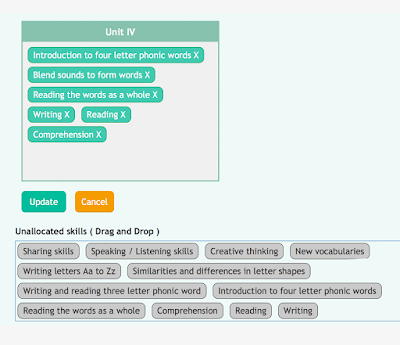
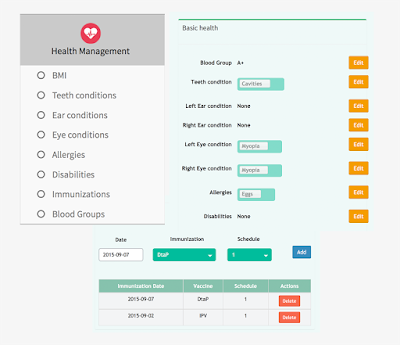
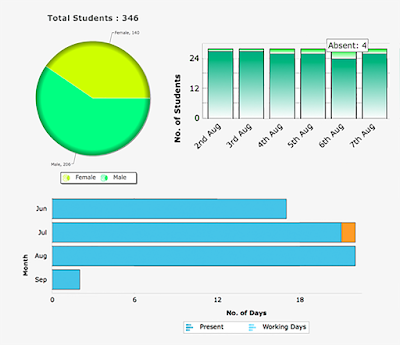
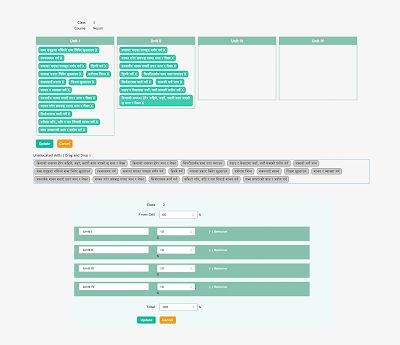
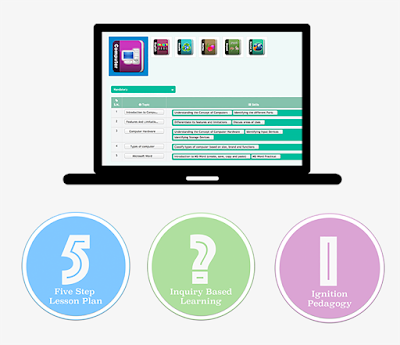
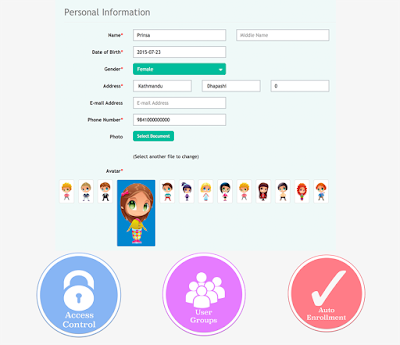
My role of R&D engineer and Project Lead incorporated architecting overall logic and process flow of Administrative and TeacherUI consisting User, Content, Classroom, Health and Pedagogy Management System. I also designed and co-developed EdCrayon Android application incorporating offline services, interactive charts, formative pedagogy, quiz engines among other features. Additionally, I developed several database administrative tools, wrote several crons and selenium test scripts, and managed multiple school servers. Similarly, I also trained and mentored junior programmers in programming methodologies and best practices. Additionally, I was also involved in training teachers, school-coordinators and school principal to use EdCrayon. Apart from my primary focus on technology, I also served as a core group member in defining and prioritizing technology investments and business objectives.